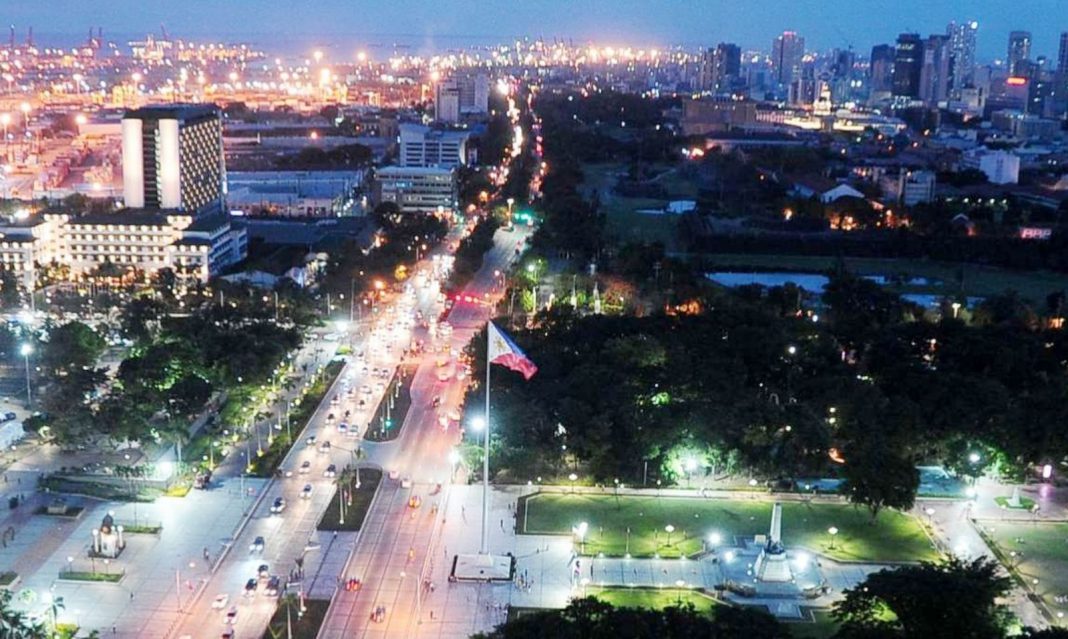In photo: Fresh vegetables displayed at a supermarket in Makati
Photo from THEPHILBIZNEWS/MAS
By Alithea De Jesus
The consumption of vegetables and other agricultural products in Metro Manila remains high given the population and the number of establishments in the country’s center of economic activities. However, most of the agri products are sourced from various provinces near the metropolis and this inevitably affects the supply since the pandemic hit the country.
It was suggested that urban farming can contribute to the recovery potential in the food sector in Metro Manila upon transition to the new normal, and local government units (LGUs) play an important role in developing community spaces for this initiative.
This is among the highlights of research assessing how the impacts of the coronavirus disease 2019 (Covid-19) pandemic manifested across the food systems in Metro Manila, which was jointly undertaken by the Food and Agriculture Organization of the United Nations (FAO), the United Nations Development Programme (UNDP), the World Food Programme (WFP), and the International Fund for Agricultural Development (IFAD).
The policy brief said the rising adoption of urban gardens demonstrates the ability of the urban populations to grow their own foods and the potential for augmented food supplies for families, whether in normal and crisis situations.
It is cited as an example Quezon City where most of its residents were empowered to use small spaces to produce food.
“Growing leafy vegetables provided food and income to some households within a short period,” it said.
To boost this initiative, the policy brief said it is important to direct public investments towards game-changing solutions to the issue of the urban food space, in addition to ensuring that urban agriculture is factored into the spatial planning of urban areas.
“The scale of the crisis has underscored the need for current food systems to transform in order to thrive, withstand and recover from potentially worse future disasters and emergencies,” it said.
To foster an enabling legal and policy environment for food systems transformation, the policy brief recommended upholding the rights of and support services for smallholder agrifood producers, and creating shorter food value chains and dispersed agrifood distribution systems, among others.
In a webinar, Quezon City Mayor Joy Belmonte said the city is much more prepared for this enhanced community quarantine (ECQ) compared to the first ECQ last year when it needed to provide food aid to its residents.
“We decided to be self-reliant and one of the things we did was to establish urban gardens, urban farms. We are proud to say that now we have 166 urban farms here in Quezon City and the largest one is a 10-hectare farm in one of our barangays and this has been a source of nutrition for many of our underprivileged and malnourished children and families in the last two months,” she said.
Belmonte said urban farmers sell some of their produce for their own self-reliance, while the city government also purchases goods from them.
Apart from establishing urban farms, the policy brief also pushed for the provision of social protection and safety nets for food systems actors as among innovations in crisis response.
“Social protection programmes –including credit, insurance and other financial support services– must be redesigned to be progressively shock-responsive and properly connected to decision-support and anticipatory action protocols across government,” it said.
The report said that as in the current crisis, the speed of delivery to beneficiaries is critical and this is heavily influenced by data-driven approaches.
“For instance, the improvement of the roll-out of the programmes targeting the production segment of the food systems is the improvement of the Farmers and Fisherfolk Registry Systems and Databases. New schemes and programmes should also be developed to reach other food systems actors that are underserved,” it added.














